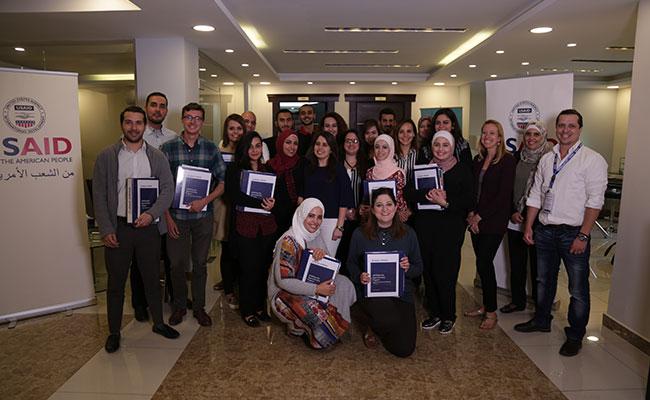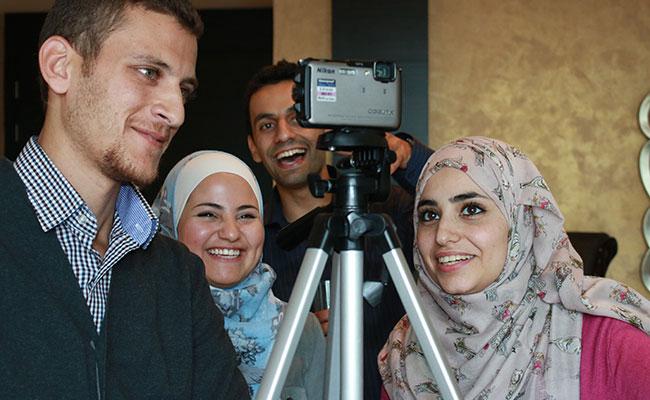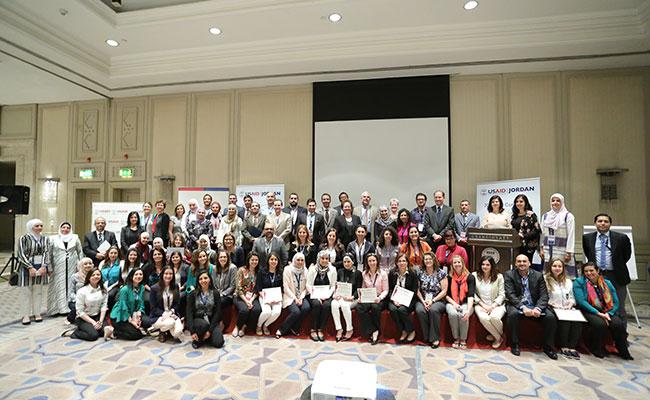Monitoring and Evaluation Support Project | Strengthening Data Use and Helping Create a Stable and Democratic Jordan
Providing performance monitoring, evaluation, research, organizational learning, capacity building, and knowledge management to improve stability in Jordan
Tetra Tech International Development
Tetra Tech is providing critical performance monitoring, evaluation, and capacity building support to strengthen data use and help create a stable and democratic Jordan.
Through the U.S. Agency for International Development (USAID)-funded Monitoring and Evaluation Support Project (MESP), MSI, A Tetra Tech Company, implemented a five-year program supporting the USAID/Jordan Mission to reach its performance monitoring and evaluation (M&E) requirements and development goals to improve prosperity, accountability, and equality within Jordan’s government. The U.S. Government is one of the largest donors in Jordan, and considers it a priority country as part of the G7-endorsed Global Health Security Agenda. Our team is providing technical and advisory services to USAID/Jordan and its implementing partners to strengthen data use and evidence-based decision-making to improve the availability and quality of performance and evaluation data.
The Tetra Tech team implemented the following programs and activities to strengthen USAID/Jordan’s monitoring and evaluation capacity through apprenticeships, evaluations, and trainings.
USAID/Jordan Apprenticeship Program: In collaboration with USAID, our team developed a six-month USAID/Jordan Apprenticeship Program to provide intensive training and mentoring on M&E topics. Thirteen apprentices graduated from the program’s first round with 92 percent placed in jobs within USAID programs. Fifteen apprentices are on track to graduate from the program in 2018, and a third round of apprenticeships is planned.
Co-generation of Evaluation Recommendations: In partnership with USAID/Jordan, Tetra Tech designed a new, structured collaborative process to strengthen the use of evaluation recommendations and learning support from the evaluation process. The structured collaboration practice that our team implemented was among 10 winners of the 2017 USAID Collaboration, Learning, and Adaptation Global Case Study Competition.
Jordan Development Knowledge Management Portal (KaMP): In early 2016, the MESP team, in partnership with USAID, developed and deployed the Jordan Development KaMP, a data bank for important information, including evidence-based results, technical reports and assessments, evaluations, cases, policy documents, maps, and training curricula. As of December 2017, users uploaded 3,025 resources to the KaMP, and an average of more than 1,200 people visit the KaMP each month. Watch a video about the KaMP.
Annual Monitoring, Evaluation, and Learning (MEL) Conference: The MESP team collaborated with USAID/Jordan to develop the annual USAID/Jordan MEL conference and has continued to improve and expand the conference each year. The annual conference brings together more than 100 participants, including Mission staff, implementing partners, Chiefs of Party and managers, MEL practitioners, and external experts to learn, share experiences, and discuss MEL approaches. Watch a video on the 2017 MEL conference.
Program Accomplishments: In addition to the assessments and evaluations performed under MESP, Tetra Tech also provided technical support to integrate performance data into Mission Portfolio Reviews. The MESP team has completed 11 evaluations or special studies that helped USAID/Jordan make informed decisions and support wider learning. Since 2016 MESP also has supported USAID/Jordan with more than 50 maps to inform the Mission’s planning and programming. To help inform future programming, our team also designed a comprehensive and innovative assessment of Jordanian youth ages 10-24 that helped design future USAID youth-focused activities.
To ensure the sustainability of our work, we have provided more than 3,600 hours of training throughout the life of the project. As part of MESP, we successfully trained Mission staff on data quality assessment (DQA) procedures and practices, so they can conduct DQAs without assistance. Under MESP 67 percent of USAID/Jordan Mission staff report that they have more available data, 87 percent report that their ability to implement M&E tasks has improved, and 91 percent report that they have been able to produce better products for the development activities they oversee. 100 percent of implementing partners surveyed also report that MESP support has improved their ability to implement monitoring and evaluation tasks.




